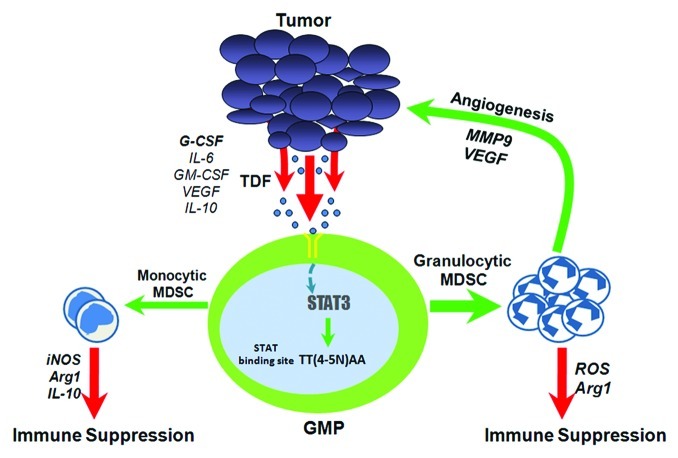Figure 1. Granulocytic MDSC development via G-CSF-dependent mechanisms. Aberrant myelopoiesis from bone marrow progenitors (i.e., granulocyte-macrophage/GMP) is initiated by TDF, many of which function through STAT3. We propose that aphysiologic levels of tumor-derived G-CSF constitute a relevant myelopoietic growth factor, which triggers STAT3 activation in GMP ensuing G-CSF receptor engagement. Activated STAT3 then translocates to the nucleus where it binds to specific elements of myelopoietic target genes that in turn alter normal myeloid cell differentiation, perhaps skewing development in the direction of granulocytic MDSC. Several STAT3 target genes have been previously described.2 A few examples of relevant TDF, as well as mechanisms of granulocytic and monocytic MDSC-mediated tumor progression are shown. Such TDF may influence MDSC in multiple ways, including how MDSC function or mobilize to sites of pathologic challenges.

An official website of the United States government
Here's how you know
Official websites use .gov
A
.gov website belongs to an official
government organization in the United States.
Secure .gov websites use HTTPS
A lock (
) or https:// means you've safely
connected to the .gov website. Share sensitive
information only on official, secure websites.
